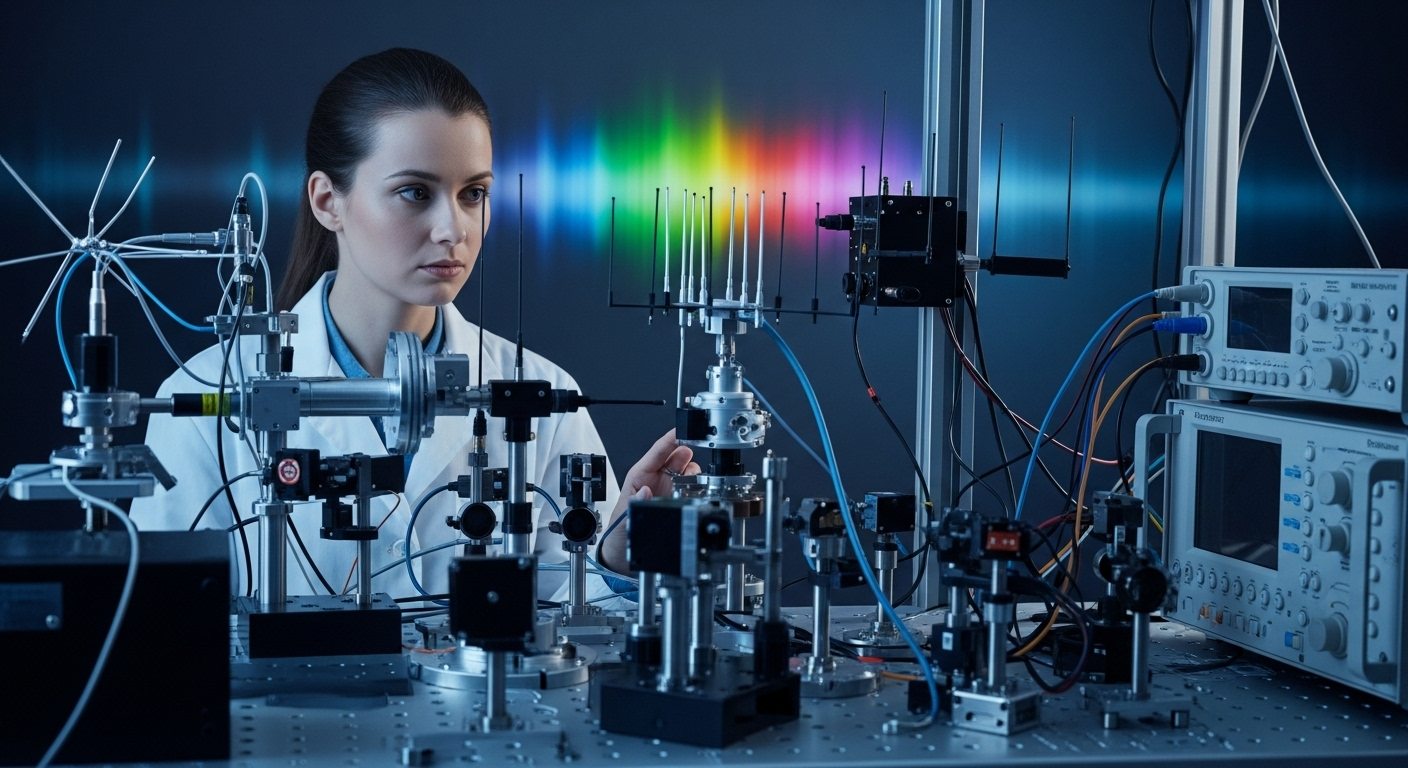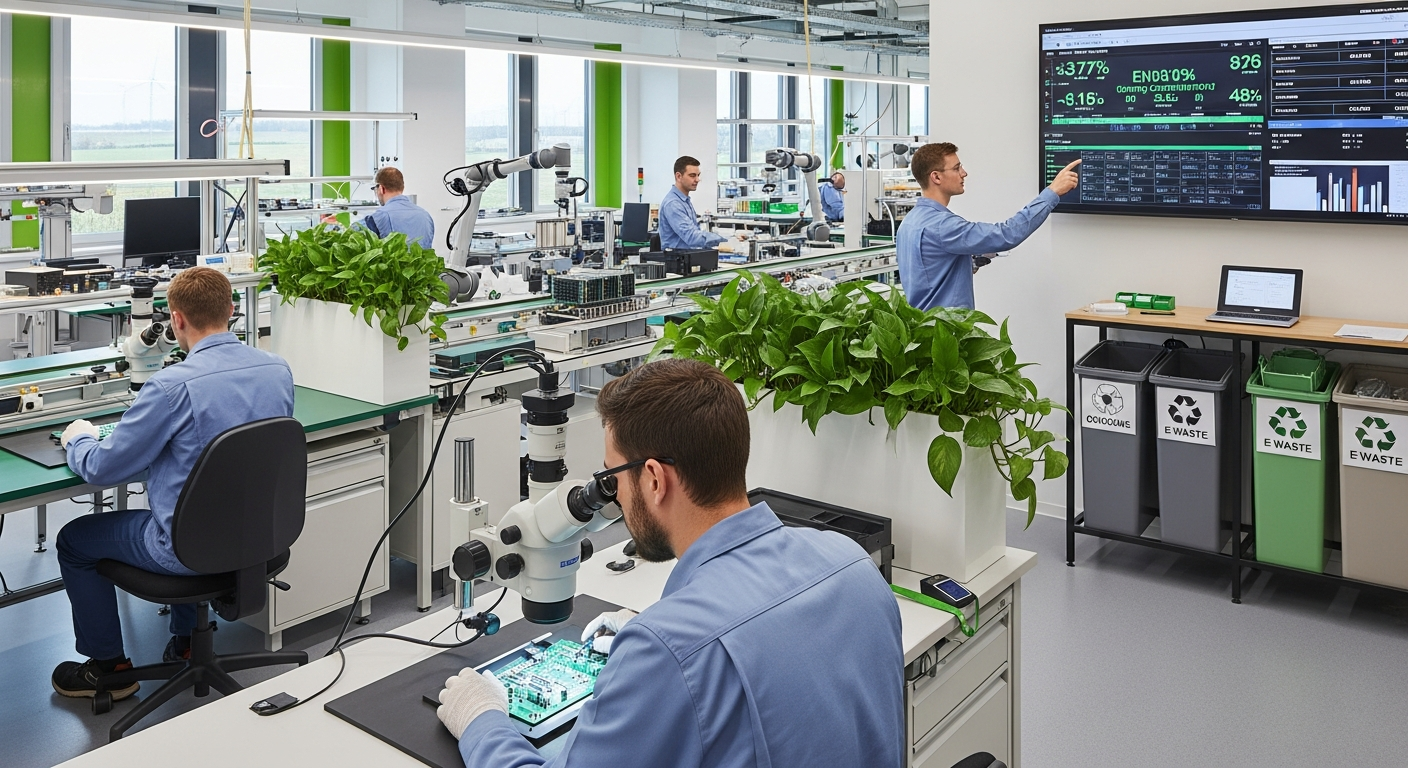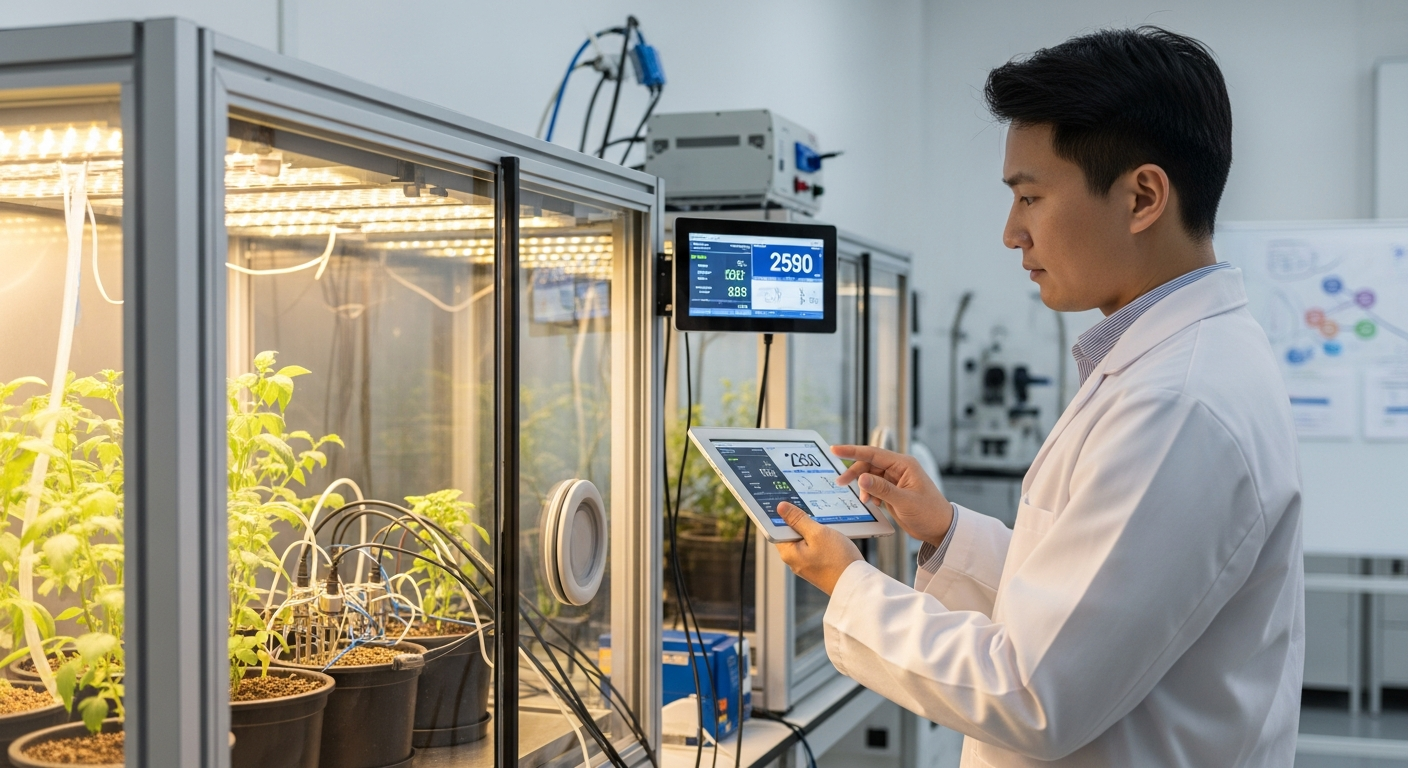Quantum Sensing: Revolutionizing Industrial Quality Control
Quantum sensing, a cutting-edge technology leveraging the principles of quantum mechanics, is poised to transform industrial quality control processes. This emerging field promises unprecedented precision in measurement and detection, offering manufacturers the ability to identify defects and anomalies at the atomic level. As industries strive for ever-higher standards of quality and efficiency, quantum sensing stands at the forefront of innovation, promising to redefine the boundaries of what's possible in industrial metrology.

The Quantum Advantage in Quality Control
At its core, quantum sensing relies on the manipulation and measurement of quantum states. Unlike classical sensors, which are limited by fundamental noise floors, quantum sensors can operate at the very limits of precision allowed by the laws of physics. This quantum advantage translates into the ability to detect incredibly small changes in electric and magnetic fields, gravity, and other physical properties.
In the context of industrial quality control, this means that manufacturers can now identify structural defects, material impurities, and microscopic variations that would have gone unnoticed using conventional techniques. For industries dealing with high-value or safety-critical components, such as aerospace or medical device manufacturing, the implications are profound. Quantum sensors can potentially detect hairline cracks in aircraft components or minute imperfections in surgical implants, significantly enhancing product reliability and safety.
Applications Across Industries
The potential applications of quantum sensing in quality control span a wide range of industries. In the semiconductor industry, for instance, quantum sensors can be used to map the distribution of dopants in silicon wafers with unprecedented resolution. This level of precision is crucial for ensuring the performance and reliability of next-generation microchips.
In the pharmaceutical sector, quantum sensing technologies are being explored for their potential to detect minute variations in the molecular structure of drugs. This could lead to more effective quality control processes in drug manufacturing, ensuring greater consistency and efficacy of medications.
The automotive industry, too, stands to benefit from quantum sensing in quality control. Advanced sensors could be used to inspect the integrity of composite materials used in modern vehicles, or to detect microscopic flaws in critical components like engine parts or safety systems.
Overcoming Implementation Challenges
While the potential of quantum sensing in industrial quality control is immense, several challenges must be overcome before widespread adoption becomes a reality. One of the primary hurdles is the need for specialized equipment and expertise. Quantum sensors often require carefully controlled environments to function optimally, which can be difficult to achieve in a typical industrial setting.
Moreover, interpreting the data generated by quantum sensors requires a deep understanding of quantum mechanics and advanced data analysis techniques. This necessitates significant investment in training and education for quality control personnel, as well as the development of user-friendly interfaces that can translate complex quantum data into actionable insights for non-specialists.
The Road to Integration
Despite these challenges, progress in quantum sensing technology is accelerating. Researchers and industry leaders are working to develop more robust and practical quantum sensing solutions that can operate reliably in real-world industrial environments. Efforts are underway to miniaturize quantum sensors and integrate them into existing quality control workflows, making the technology more accessible to a broader range of manufacturers.
As quantum sensing technology matures, we can expect to see a gradual integration into industrial quality control processes. Early adopters are likely to be industries where the stakes are highest – aerospace, defense, and high-precision manufacturing. However, as costs decrease and usability improves, the technology is expected to find its way into more mainstream manufacturing operations.
Quantum Leaps for Quality Control
-
Implement pilot programs to test quantum sensing in critical quality control points
-
Invest in training programs to build a workforce skilled in quantum technologies
-
Collaborate with research institutions to stay at the forefront of quantum sensing advancements
-
Develop standardized protocols for integrating quantum sensors into existing quality control systems
-
Consider the long-term cost savings from improved defect detection and reduced product recalls
As we stand on the brink of a new era in industrial quality control, quantum sensing offers a glimpse into the future of manufacturing. By pushing the boundaries of measurement and detection, this technology promises to elevate product quality, enhance safety, and drive innovation across industries. While challenges remain, the potential benefits of quantum sensing in quality control are too significant to ignore. As manufacturers continue to pursue excellence in their products and processes, quantum sensing will undoubtedly play a crucial role in shaping the factories of tomorrow.






